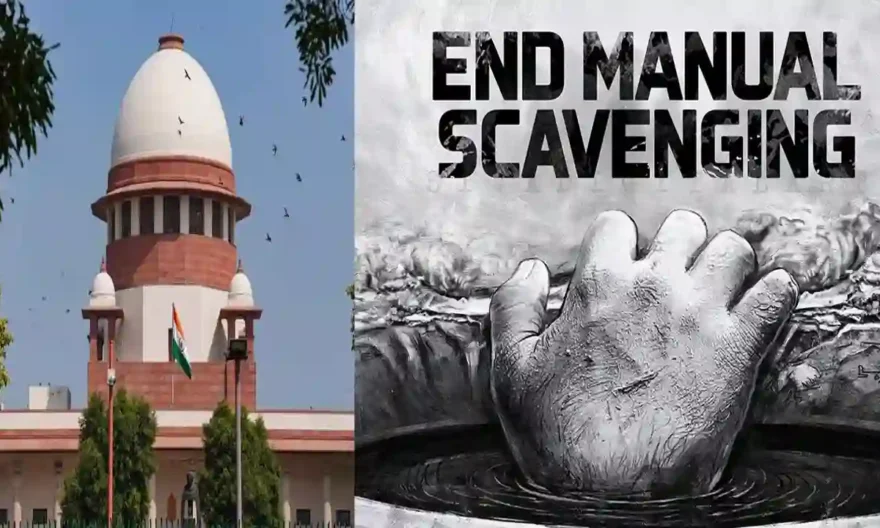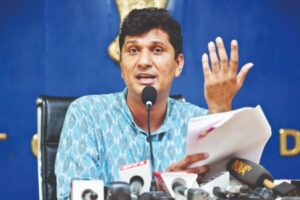
The Supreme Court has recently directed the Secretary of the Department of Social Justice and Empowerment, Ministry of Social Justice and Empowerment, Government of India, to convene a meeting with the secretaries of all States and Union Territories in charge of social justice to discuss various aspects to prevent the employment of manual scavengers as soon as possible.
A Bench of Justices Ravindra Bhat and Dipankar Datta further ordered the Amicus Curiae and Additional Solicitor General to provide the Court with possible ‘discussion points’ for the meeting to the Court.
The Court was hearing a petition seeking steps to limit the hiring of manual scavengers throughout the country.
In February, the Court ordered the Centre to record the steps it had taken to prevent the employment of manual scavengers in accordance with the Prohibition of Employment as Manual Scavengers and Their Rehabilitation Act 2013.
The Court had asked the Centre to inform the steps taken in accordance with the guidelines issued in the 2014 judgement “Safai Karamchari Andolan And Others vs. Union of India And Others.”
The Court had issued a batch of guidelines for the rehabilitation of manual scavengers in the Safai Karamchari Andolan verdict, including cash support, scholarships for their children, allotment of residential plots, training in livelihood skills and monthly stipends, concessional loans, and so on.
The judgement also established a minimum level of compensation in situations of sewage deaths and required the railways to put a halt to hand scavenging on tracks.
During the recent hearing, Amicus K Parameshwar informed the court that the Indian Railways had recruited cleaners for ‘insanitary latrine’ using protective gear. He claims that this does not fit the criteria of manual scavenging.
“According to the Act, their involvement in railway tracks is a problem. But then it adds that employment under the rules is permitted. The entire point of the Dry Latrines Act and previous decisions was to have mechanised cleaning. However, this brings it back,” it stated.
According to the Amicus Curiae, the “Indian Railways in this instance” were the main culprits. The Court has previously inquired about the status of Dry Latrines and Safai Karamcharies in Cantonment Boards and Railways. And if Safai Karamcharies’ employment in Railways and Cantonment Boards was direct or indirect, i.e. through contractors or otherwise.
The Bench then asked Additional Solicitor General Aishwarya Bhati what might be done for the states that had not created the committees as directed by the Court.
In light of the June 4, 2014 and October 3, 2014 notifications, the Court asked the Indian Railways provide a detailed affidavit dealing with these issues.
“You can take instructions from the Railways, Ms. Bhati,” the Bench added.
The case is listed for further hearing on April 19, 2023.




